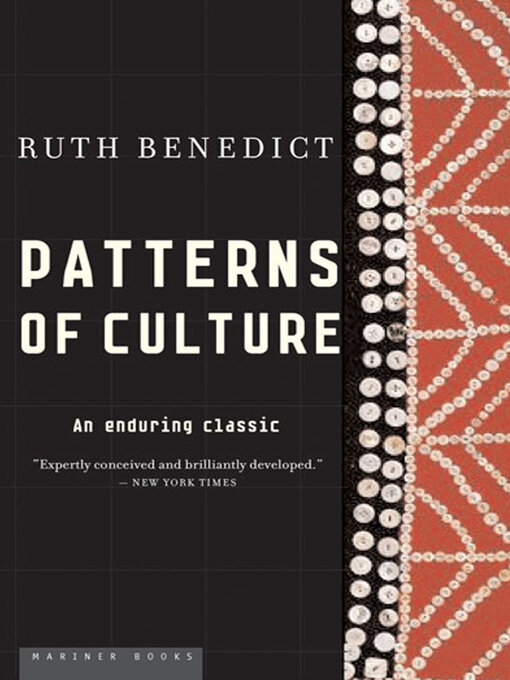- New eBook additions
- All About Education
- Cozy ebooks for Fall
- Made in West Virginia
- A Shore Thing
- First in the series
- Strange New Worlds
- Worlds of Fantasy
- Most popular
- Available now
- Try something different
- Just Plain Good
- See all
-
Description
-
Details
A remarkable introduction to cultural studies, Patterns of Culture made history in exploring the role of culture in shaping our lives. In it, the renowned anthropologist Ruth Benedict offers an in-depth look at three societies—the Zuñi of the southwestern United States, the Kwakiutl of western Canada, and the Dobuans of Melanesia—and demonstrates the diversity of behaviors in them.
Benedict’s groundbreaking study shows that a unique configuration of traits defines each human culture and she examines the relationship between culture and the individual. Featuring prefatory remarks by Franz Boas, Margaret Mead, and Louise Lamphere, who calls it “a foundational text in teaching us the value of diversity,” this provocative work ultimately explores what it means to be human.
“That today the modern world is on such easy terms with the concept of culture . . . is in very great part due to this book.” —Margaret Mead

Kindle Book
- Release date: June 1, 2018
OverDrive Read
- ISBN: 9780547523927
- Release date: June 1, 2018
EPUB ebook
- ISBN: 9780547523927
- File size: 653 KB
- Release date: June 1, 2018
Formats
Kindle Book
OverDrive Read
EPUB ebook
subjects
Languages
English
